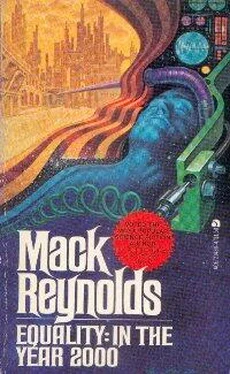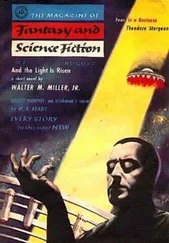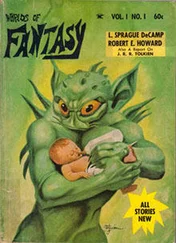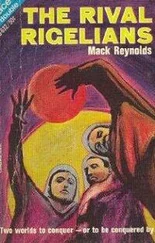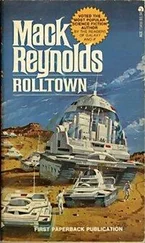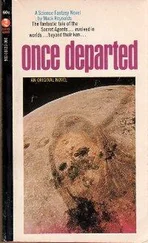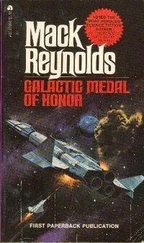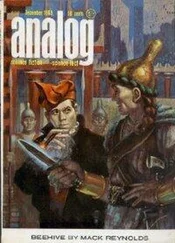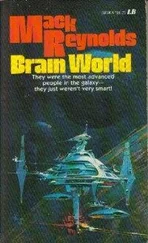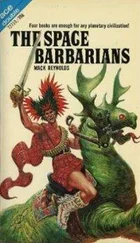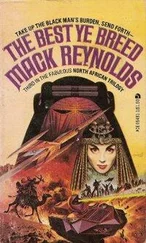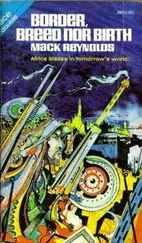Mack Reynolds - Equality - In the Year 2000
Здесь есть возможность читать онлайн «Mack Reynolds - Equality - In the Year 2000» весь текст электронной книги совершенно бесплатно (целиком полную версию без сокращений). В некоторых случаях можно слушать аудио, скачать через торрент в формате fb2 и присутствует краткое содержание. Год выпуска: 1977, ISBN: 1977, Издательство: Ace Books, Жанр: Фантастика и фэнтези, на английском языке. Описание произведения, (предисловие) а так же отзывы посетителей доступны на портале библиотеки ЛибКат.
- Название:Equality: In the Year 2000
- Автор:
- Издательство:Ace Books
- Жанр:
- Год:1977
- ISBN:0-441-21430-4
- Рейтинг книги:3 / 5. Голосов: 1
-
Избранное:Добавить в избранное
- Отзывы:
-
Ваша оценка:
- 60
- 1
- 2
- 3
- 4
- 5
Equality: In the Year 2000: краткое содержание, описание и аннотация
Предлагаем к чтению аннотацию, описание, краткое содержание или предисловие (зависит от того, что написал сам автор книги «Equality: In the Year 2000»). Если вы не нашли необходимую информацию о книге — напишите в комментариях, мы постараемся отыскать её.
Equality: In the Year 2000 — читать онлайн бесплатно полную книгу (весь текст) целиком
Ниже представлен текст книги, разбитый по страницам. Система сохранения места последней прочитанной страницы, позволяет с удобством читать онлайн бесплатно книгу «Equality: In the Year 2000», без необходимости каждый раз заново искать на чём Вы остановились. Поставьте закладку, и сможете в любой момент перейти на страницу, на которой закончили чтение.
Интервал:
Закладка:
Equality: In the Year 2000
by Mack Reynolds
To Arthur C. Clarke
With whom I couldn’t agree more when he wrote in his excellent PROFILES OF THE FUTURE: It is impossible to predict the future, and all attempts to do so in any detail appear ludicrous within a very few years… If this book seems completely reasonable and all my extrapolations convincing, I will not have succeeded in looking very far ahead; for the one fact about the future of which we can be certain is that it will be utterly fantastic .
INTRODUCTION
Almost a century ago, an obscure, unsuccessful writer named Edward Bellamy wrote a novel. Looking Backward , the success of which was as much a surprise to him as it was to the rest of the world. Indeed, it shortly became the most influential Utopian book ever written. Sales were in the millions; it was translated into twenty languages: countless editions were issued and it has never gone out of print. It deeply influenced such men as John Dewey. William Allen White, Norman Thomas, Thorstein Veblen. Franklin D. Roosevelt reported that in his youth, it was his “Bible.” Not too long ago, when a committee of three literary personalities—John Dewey, Charles Beard, and Edward Weeks—was named to designate the twenty-five most influential books published since 1885, Bellamy’s novel was voted unanimously as second only to Marx’ Das Kapital .
But a century is a longtime, and although Looking Backward is still highly readable, even inspiring to those who envision a better world, it is very dated. Much of what Bellamy foresaw in portraying his future society has already been accomplished: much can never be.
So it was that I had decided to use the fundamental plot, the basic characters, and aim for the same goal as did Bellamy—a portrayal of the world in 2000 A.D. as it might be if man comes to his senses. The novel, dedicated to Edward Bellamy, was entitled Looking Backward: From the Year 2000 .
As mentioned, Bellamy was amazed at the reception of his Utopian story. All over the country, “Bellamy Clubs” sprang up, particularly in the colleges. Thousands of letters poured in, praising, criticizing, questioning, sometimes reviling various aspects. In defense, he wrote a sequel, expanding his ideas, going into more detail. It was entitled Equality , was unsuccessful, and soon disappeared from the scene.
The present writer finds himself in the same predicament. Letters began pouring in—not all of them flattering. In defense, I have written my own sequel. Equality: In the Year 2000 .
Though a sequel to Looking Backward: From the Year 2000 , this novel can be read without a knowledge of the first book. However, it will do no harm to have a brief summary of what has gone before.
When Julian West, playboy multimillionaire, is informed by his doctor that his heart gives him at most two years to live, he seeks out the top authority on stasis—placing bodies into artificial hibernation. With the hope that science will evolve to the point where his disease is curable and he can be revived, he creates a foundation to finance the radical experiment.
Julian had expected it to be a matter of a few years at most. He is flabbergasted to be awakened thirty-three years later in the apartment of Academician Raymond Leete, his wife Martha, and daughter Edith. They have been given the task of helping him adjust to the geometrically developing changes.
Leete points out that since 1940, when Julian was a child, human knowledge has been doubling every eight years, so that now the race has 256 times the knowledge that prevailed then. The computers and automation are in full swing, so that only two percent of the population are needed to produce all that the country can consume and ninety-eight percent are on Guaranteed Annual Income. There have been radical changes in government, in industry, in the arts and sciences. Julian finds himself at sea in almost every field. Money is no longer in use, so all his efforts to perpetuate his fortune were meaningless. Cities no longer exist, nor wars, nor pollution. nor the threat of the exhaustion of the planet’s resources—none of the problems of his own time. There is no crime, no juvenile delinquents or the use of drugs.
He cannot believe so many changes could take place in but a third of a century. Leete asks him to consider, in comparison, the changes that took place between June 1914… June 1947. the same length of time.
The book ends with Julian disillusioned with this world as a Utopia—at least for him. Interlingua, an international language, has been established and the new generations do not even speak English. The Leetes had been especially trained to take care of him, as an interesting experiment. But the generation gap is such now, with human knowledge over 250 times greater than in his youth, that Julian cannot even communicate with the average person. When he proposes to Edith, she points out the impossibility. And he is too far behind, at the age of thirty-five, to ever catch up. By the time he got through the equivalent of grammar school, human knowledge would have doubled again.
He says, in despair, “I’ve been calling this Utopia, but it isn’t. For me, it’s dystopia, the exact opposite. I’m a freak. Why did you ever awaken me?”
Edith shook her head sadly. “It wasn’t my decision to make, Julian. I was against it.”
“We are free today substantially; but the day will come when our Republic will be an impossibility. It will be an impossibility because wealth will become concentrated in the hands of a few. A Republic cannot exist upon bayonets; and when that day comes, when the wealth of the nation is in the hands of a few, then we must rely upon the wisdom of the best elements of the country to readjust the laws of the nation to the changed conditions.”
James Madison, 4th President of the U.S. Father of the ConstitutionChapter One
The Year 2 New Calendar
Old people’s skills, experience, and knowledge seldom make them authorities, and are no longer critical factors in our culture. The speed and pervasiveness of social change now transforms the world within a generation, so that the experience of the old becomes largely irrelevant to the young.
—Irving Roscow, Social ScientistWhen Edith Leete entered the sanctum of the Leete apartment in the high-rise building in the Julian West University City that morning, Julian was sitting at the desk before the auto-teacher. The expression on his face was one of sour despair.
He was a man in his mid-thirties. Youthfully fresh of complexion, handsome in the British aristocrat tradition, hair dark and thick, touches of premature gray at the temples and a small amount in his mustache, flat of stomach, square of shoulders, medium tall. There was a certain vulnerable quality about his eyes and mouth which women had always found attractive, though he had never known that.
She said, “ Bon maten, Jule .”
“ Bon maten ,” he muttered, not quite graciously.
“How goes the study of Interlingua?” she asked in English.
“ Jupli mi legas gin. Des malpli mi komrenas gin.”
“ Pri kio vi paroles ? What are you saying? The more you study it the less you understand it?”
“I wish to hell you people had stuck to English, instead of dreaming up this new international language.”
She sank down in a seat and let her hands flop limply over the chair arms. “Nonsense, Jule. Interlingua is a scientific language. It works. Take spelling and pronunciation. They are absolutely phonetic and there are only five vowel sounds, where most of the old languages have twenty or more. Each letter has one sound only, and a sound is always indicated by the same letter. English was a bastard language—goodness knows how anyone ever learned it, including me. Take the word can . It means a container; it can also be a verb meaning to can something in a container; it also means you can , or are able to, do something; and it also means, spelled C-a-n-n-e-s , a town in southern France. In American idiom it could mean to dismiss or fire someone, and in British idiom it meant a tankard.
Читать дальшеИнтервал:
Закладка:
Похожие книги на «Equality: In the Year 2000»
Представляем Вашему вниманию похожие книги на «Equality: In the Year 2000» списком для выбора. Мы отобрали схожую по названию и смыслу литературу в надежде предоставить читателям больше вариантов отыскать новые, интересные, ещё непрочитанные произведения.
Обсуждение, отзывы о книге «Equality: In the Year 2000» и просто собственные мнения читателей. Оставьте ваши комментарии, напишите, что Вы думаете о произведении, его смысле или главных героях. Укажите что конкретно понравилось, а что нет, и почему Вы так считаете.
